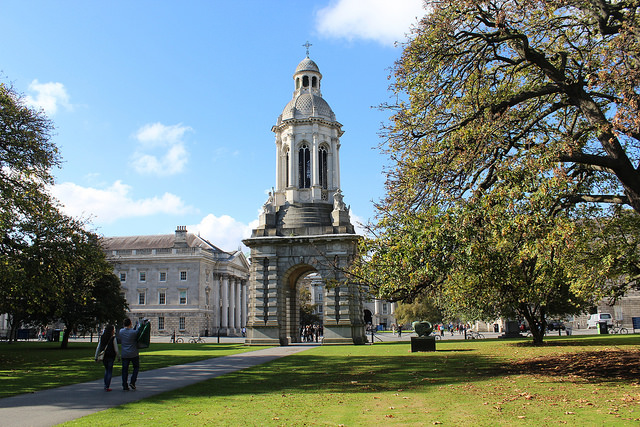Lady Margaret Hall, a constituent college of the University of Oxford, is to launch a pilot access scheme offering a “foundation year” to students from under-represented backgrounds in a new programme modelled on the Trinity Access Programme (TAP).
Starting next autumn, Lady Margaret Hall will offer the four-year pilot scheme in association with Trinity.
The Trinity Access Programme, which has operated in Trinity for 17 years, works to enable those who come from under-represented socio-economic groups to come to the College.
In a press statement about the programme, Chief Executive of Ireland’s Higher Education Authority (HEA), Tom Boland, said: “The pilot scheme will see [Lady Margaret Hall] taking a dozen students who tutors think could, and should, benefit from an Oxford education, but who would not normally apply or succeed in competing through conventional channels.”
He added that the HEA “warmly welcomes the collaboration between TCD and Oxford University as a unique opportunity for the sharing of good practice between Ireland and the UK in this very important part of the mission of higher education”.
The Trinity Access Programme was established with the aim of attracting more students from under-represented backgrounds to the College. Commenting on the establishment of the scheme in Oxford in a press statement, the Provost, Dr Patrick Prendergast, said that the Trinity Access Programme has “had great success” and that students who have entered the College through the Trinity Access Programme “have made a real contribution to the social and cultural environment of Trinity”.
He went on to explain the success of the programme: “Each year, over 90% of the Foundation Year cohort complete the course successfully and progress to degree courses across the university”. This sentiment was echoed by Boland: “The Trinity Access Programmes has a strong record as a proven model of intervention and support.”
In a press statement, Vice-Chancellor of the University of Oxford, Prof Louise Richardson, spoke of Oxford’s commitment “to recruiting the best and brightest students whatever their background”. Speaking at the launch of the programme, former Guardian Editor and Principal of Lady Margaret Hall, Alan Rusbridger, said: “This pilot scheme will, we hope, find young people from under-represented groups and help them find a path into an Oxford education and thereby transform lives.”
At her address to the Royal Irish Academy on Higher Education in November, Richardson responded to a question from The University Times on the different university application systems countries used, and on how these differences impact upon students. Richardson argued that there is a “real advantage” to universities having a chance to choose their students, especially when it comes to applications by high-achieving students from poorer backgrounds, compared to an anonymised points system: “I trust universities to make good decisions.”
Richardson, in the press statement, explained how this pilot showed “one of the many advantages of the collegiate system” to help “identify innovative ways to recruit under-represented groups”.
In a press statement, the Minister for Higher Education in England and Wales, Jo Johnson, said that “such programmes have a key role to play in breaking down barriers”, adding that it would enable “people from disadvantaged backgrounds” to reap the benefits of a “world class” education.
Lady Margaret Hall was founded in 1878 with the aim of educating women, rather than solely men. The college opened its doors to men in 1978.







